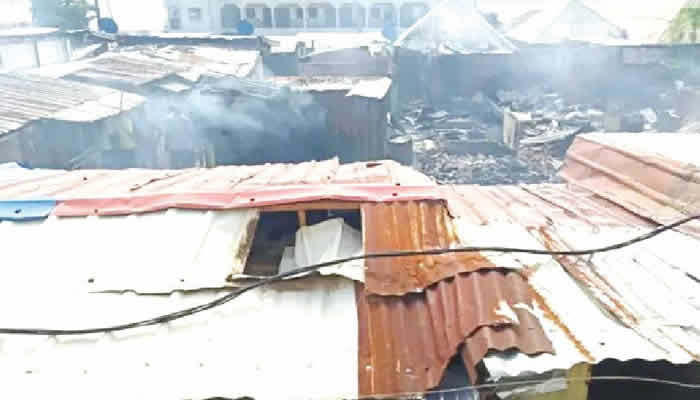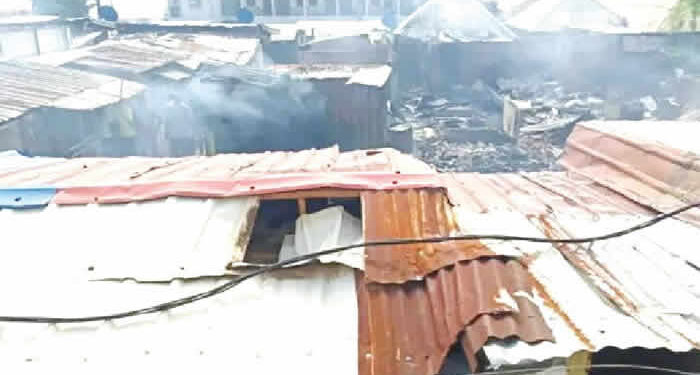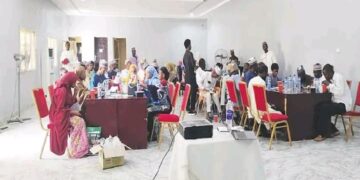A devastating fire has swept through the GSM village located around Kpata Market in Lokoja, the capital of Kogi State, resulting in the destruction of properties worth millions of naira. The fire broke out in the early hours of Thursday, reportedly due to a power surge that overwhelmed the electrical systems in the area.
According to eyewitness accounts, shop owners were caught off guard by the incident and were unable to salvage any of their belongings as the flames quickly escalated beyond control. Muhammed Yahaya, one of the traders who lost his merchandise in the fire, recounted the harrowing moment he received the news. “Somebody called me around 5:30 am today to inform me that the market is on fire. When I arrived, I saw that many shops had already been engulfed in flames,” he said.
Yahaya further explained that preliminary investigations suggested the fire was likely caused by a high voltage of electricity that had been supplied to the market. “The residents of nearby houses reported that the high voltage affected their fans and electrical appliances, which may have led to the fire in the market. Millions of naira worth of goods have been destroyed, including laptops, phones, and various accessories. Tragically, many traders had just received new stock this week. This is unprecedented and has left everyone in shock,” he added.
In light of this disaster, Yahaya appealed to the Kogi State Government for financial assistance to help those affected and for support in rebuilding the severely damaged GSM village. He expressed optimism in the state’s leadership, saying, “We know we have a governor who listens. He is a father to us all. We are resourceful youths; most of us are graduates who have taken it upon ourselves to create jobs rather than waiting for the government to provide them.”
The impact of the fire has been profound, with Yahaya emphasizing the long-term consequences of losing their businesses. “The properties we have nurtured for over 15 years were destroyed in less than an hour. We urgently need the government to assist us financially and help rebuild the market. Approximately 200 youths rely on this market for their livelihoods, and many were struggling before this incident,” he lamented.
Another trader, Moses Felix, who serves as the Financial Secretary for the Kogi Association of Phones and Accessories Dealers, shared his emotional turmoil following the fire. “I was crying this morning when my shop was consumed by flames. I couldn’t do anything to stop it. As someone who specializes in laptop repairs and sales, the goods that arrived just this week were completely destroyed. I’m starting from scratch now,” he explained, visibly distressed.
Felix, a married man with children, voiced his concerns about the future. “Where do I go from here? How can I provide for my family amid this economic hardship? The government needs to come to our aid. I employ three workers, and now they will return home without jobs,” he said, highlighting the broader implications of the fire on employment and local economic stability.
As the situation unfolded, fire service officials were actively engaged in efforts to extinguish the remaining flames, but the extent of the damage had already been done. The community is now left grappling with the aftermath of this tragic event, and calls for government intervention continue to grow louder as traders seek to rebuild their lives and livelihoods.
The fire at the Kogi phone market serves as a stark reminder of the vulnerabilities faced by small businesses in the region, particularly regarding infrastructure and emergency preparedness. The resilience of the traders in the face of such adversity will be tested in the coming days as they navigate the challenges of recovery and rebuilding.









